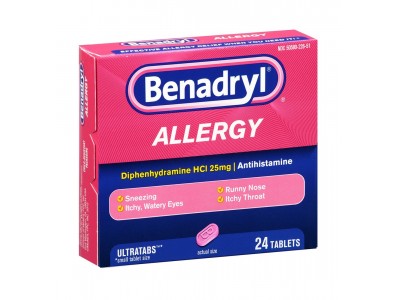Benadryl, also known as diphenhydramine, is an antihistamine commonly used to treat allergy symptoms, such as sneezing, itching, watery eyes, and runny nose. While generally considered safe when used appropriately, it's important to be aware of potential interactions with other medications, as these can affect how each drug works and may increase the risk of side effects.
Central Nervous System (CNS) Depressants: Benadryl has sedating effects and can enhance the central nervous system depressant effects of other medications, such as benzodiazepines (e.g., lorazepam, diazepam), barbiturates, and opioids. This combination can lead to increased drowsiness, dizziness, and impaired coordination.
Anticholinergic Medications: Benadryl has anticholinergic properties, meaning it blocks the action of acetylcholine, a neurotransmitter involved in various bodily functions. Taking Benadryl with other medications that also have anticholinergic effects (e.g., tricyclic antidepressants, certain antipsychotics) can increase the risk of side effects like dry mouth, constipation, urinary retention, and confusion, particularly in older adults.
Monoamine Oxidase Inhibitors (MAOIs): MAOIs are a class of antidepressants that can interact with Benadryl, potentially leading to severe hypertension (high blood pressure) or serotonin syndrome, a serious condition characterized by rapid changes in mental status, agitation, sweating, muscle twitching, and fever.
Other Sedating Medications: Combining Benadryl with other medications that cause sedation or drowsiness, such as certain muscle relaxants and sleep aids (e.g., zolpidem, eszopiclone), can intensify these effects and impair cognitive and motor function.
Alcohol: Drinking alcohol while taking Benadryl can increase the risk of CNS depression and may exacerbate drowsiness and impairment.
It's crucial to inform your healthcare provider about all medications, supplements, and herbal products you are taking, including over-the-counter medications like Benadryl. They can help assess potential interactions, adjust your treatment plan if necessary, and provide guidance on safe and effective medication use.
Remember, the information on medication interactions is continually evolving as new research emerges. Always consult with a healthcare provider or pharmacist for personalized advice tailored to your specific health needs and circumstances. This proactive approach ensures that you receive the safest and most effective treatment possible.
